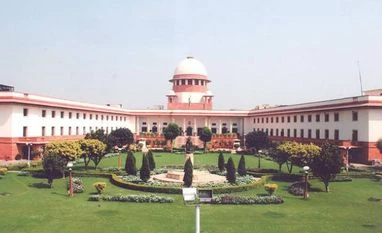The executive and the judiciary have stood eyeball-to-eyeball several times in the past but Friday’s judgment of the five-judge constitution bench asserting the supremacy of the judges in appointments to the Supreme Court and 24 high courts is the most recent blow to the government.
The 1000-page judgment insists that judges will select judges for the appellate courts through a collegium consisting of five seniormost judges of the Supreme Court headed by the Chief Justice of India.
The Modi government and Parliamentarians wanted to change the system which was in place for two decades. They proposed another selection panel including the Union Law Minister and two eminent persons apart from the Chief Justice and two senior Supreme Court judges. The ‘eminent persons’ were to be selected by the Prime Minister, the Chief Justice and the leader of the largest opposition party in the Lok Sabha.
The collegium system was criticised for nepotism and lack of transparency. Therefore, the NDA government passed the 99th Constitution amendment, which was assented to by the President in December 2014 and notified in April this year.
Immediately thereafter, about a dozen petitions were moved before the Supreme Court challenging the law. They were referred to a five-judge constitution bench.
Meanwhile, all appointments were stalled. One immediate effect of Friday’s judgment is that the collegium system will roll out again, though with some tweaking promised by the judges.
More From This Section
The government, on its part, is left with little legal remedy. A review petition is impractical as it is almost always dismissed and the Attorney General has already rejected the idea.
The other option for the government is to bring another Bill, curing the constitutional infirmities pointed out in the judgment. It will obviously be a long and winding course for the government. Therefore, the winner in this round is clearly the judiciary.
A timeline of events:
Aug 19, 2014: Three PILs filed in SC for declaring the National Judicial Appointments Commission (NJAC) Bill unconstitutional
Aug 25: SC refuses to intervene “at this stage” on the issue of NJAC
Jan 5, 2015: Plea moved by senior advocate Bhim Singh and Supreme Court Advocates on Record Association challenging constitutional validity of NJAC Act, 2014
Jan 6: SC declines urgent hearing of plea seeking quashing of the NJAC Act
Feb 13: NGO Centre for Public Interest Litigation files a plea in SC challenging constitutional validity of NJAC
Mar 10: Hearing on validity of NJAC commences in SC with Centre “vigorously” opposing the pleas to stay notifications of the law
Mar 11: SC restrains all high courts from entertaining any petition challenging validity of NJAC
Mar 17: SC commences hearing to decide maintainability of a batch of pleas challenging the validity of NJAC
Mar 18: Centre terms collegium system of judges appointing judges “illegal” in SC
Mar 19: SCBA supports in SC the NJAC Act meant to replace the collegium system
Mar 24: SC reserves its verdict on maintainability of petitions challenging the validity of NJAC
Apr 7: SC refers to a larger bench a batch of petitions challenging constitutional validity of NJAC
Apr 15: Justice A R Dave recuses from hearing petitions challenging the NJAC Act dealing with judges’ appointment
Apr 16: SC constitutes a new bench to examine validity of NJAC
Apr 22: SC clears the deck for commencing the hearing on the validity of NJAC, with a Constitution Bench rejecting demands for recusal of judges
)